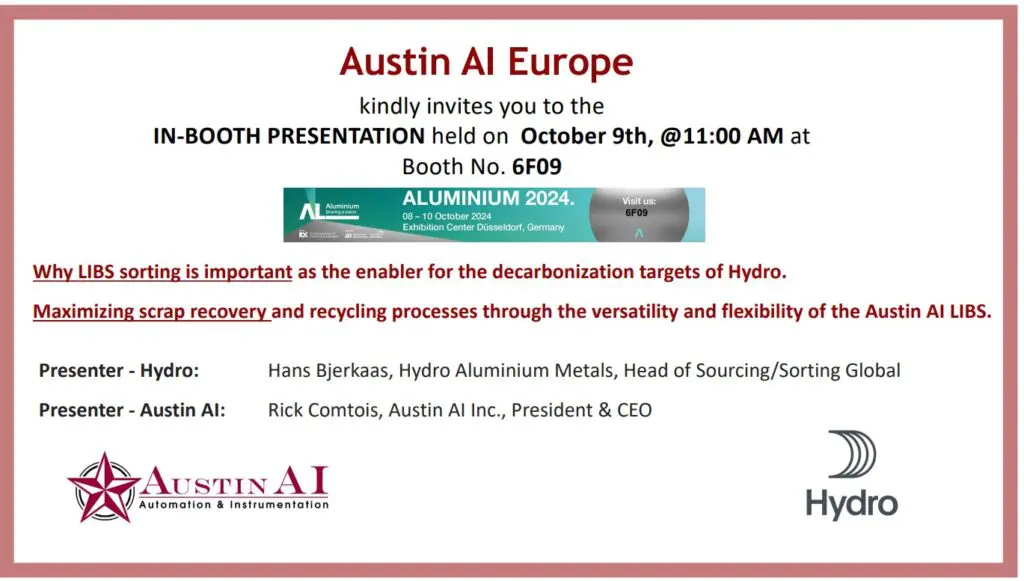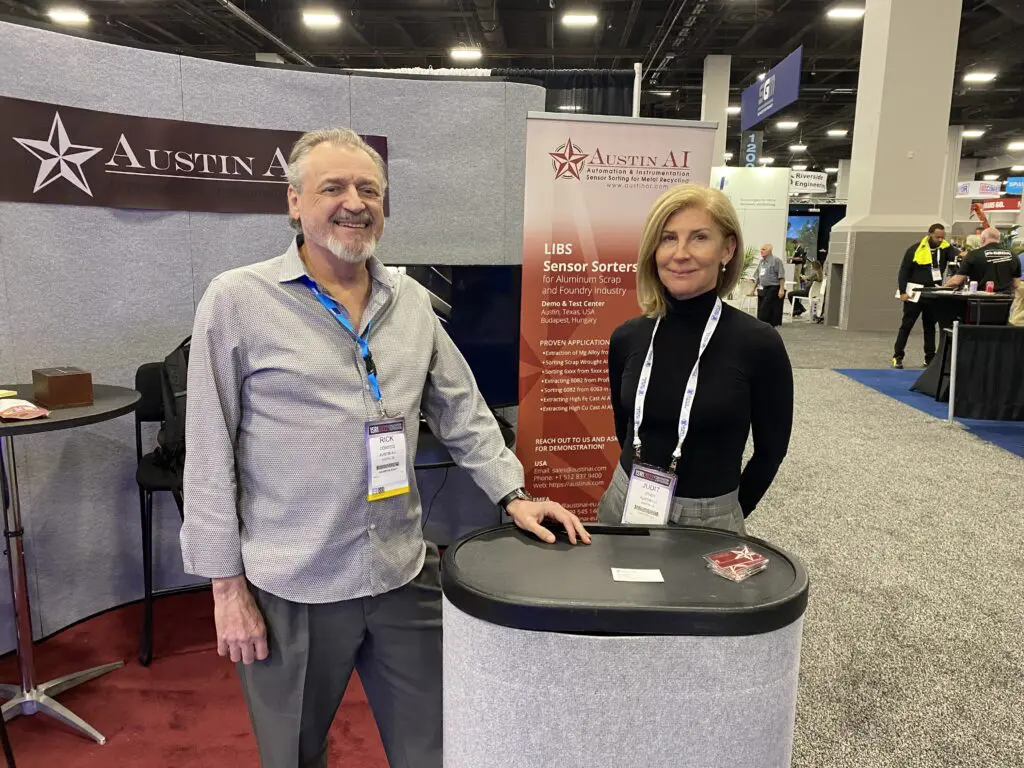‘Aluminium is a fundamental material across a wide range of industries, with the transportation, construction and packaging sectors being some of the largest consumers,’ observes Judit Jeney, md Austin AI Europe in Budapest.
Jeney sees laser induced breakdown spectroscopy (LIBS) as a major innovation to boost the recycling of aluminium.
The technology provider underlines the unique properties that make aluminium indispensable in applications where lightweight, strength and durability are paramount. As well as the specific characteristics of the sector related alloy types, another key importance of the metal is that recycling aluminium means a 95% energy saving compared to primary production.
Another important factor is the infinite recyclability of aluminium, which not only helps but obliges industry players to recycle it. The aluminium industry uses a vast array of alloys, each with unique chemical compositions tailored for specific properties and applications.
As a result, modern recycling technologies face the challenge of sorting and processing these alloys to maintain their integrity and ensure the recycled material output meets required specifications. Advanced sorting technologies are increasingly used to identify and separate different aluminium alloys before they are melted down.
LIBS IMPACT
Today, only the LIBS-based sensor sorters are capable of processing high-purity sorted fractions at the high throughput rate required by industry. The growing demand for such fractions from mixed aluminium scrap has prompted more vendors to appear on the market with their LIBS-based sensor sorters.
‘We at Austin AI Europe are the official agent of Austin AI, the inventor and manufacturer of the Austin AI and Hydro Aluminium jointly patented, technology based, LIBS sensor sorter,’ Jeney says.
The Austin AI LIBS is known for its unique design, which offers remarkable advantages when considering real-life, occasionally harsh, operational conditions and the strict expectations of processors.
Just some of its key features:
- free fall design, combined with vibratory feeders, helps to minimise the overlapping pieces reaching the analytical channel
- fixed focus and positioned LIBS modules achieve a faster analysing rate and avoid potential failures due to the continuous movement of the sensors
- high-power laser reaches down to the base metal through most coatings
- very low and practical detection limits of the alloying elements • We can sort as low as: <0.1% Mn, <0.2% Mg, <0.2% Si, <0.1% Zn, <0.15% Fe, <0.1% Cu and more!
- freely configurable sortation setting according to the ‘furnace required’ chemical composition
- as well as aluminium alloys, different magnesium alloys can also be sorted
In the first half of the year, thanks to such a unique design and the features of the Austin AI LIBS sorter systems, Austin AI Europe was acknowledged with four orders, each of them as part of a six-lane/six-sensor configured system.
‘We are grateful to all our customers who thoroughly tested alternative LIBS systems and, after their detailed survey, decided to choose ours,’ Jeney says.
30 SYSTEMS WORLDWIDE
On top of these latest developments, more than 30 Austin AI LIBS systems are installed worldwide. They can be found in the USA, India, Japan and several countries in Europe. Yet more are to come. Austin AI is proud that some of its customers are considering buying their second system.

More of them are sending LIBS sorted fractions directly to their furnaces thanks to near 100% purity of the extracted fractions. LIBS is a new technique in the recycling industry that needs time to establish recognition as the industrial equivalent of that laboratory standard, the arc-spark.
Austin AI supports and aims to expand the application of LIBS among light-metal industrial players. Producing high-purity (near 100%), ready-to-melt alloy fractions from mixed scrap (such as shredded Zorba or its down-sorted mixed aluminium fractions) saves time, fuel, energy, and other costs for the companies.
Aluminium recycling and scrap recovery are considered sustainable practices that undoubtedly contribute towards decarbonisation aims. ‘We are fully dedicated to green aluminium production and are excited to invite everyone to our testing facilities,’ Jeney says.
‘There we will provide detailed information on the benefits of the LIBS sensor sorting technology and introduce the unique design of the Austin AI LIBS system.’
About the company
Austin AI Europe is responsible for Europe, Asia, Australia and Africa. The European headquarters is based in Budapest, Hungary. You can reach its team here. Thanks to its successful expansion to date, it is establishing local sales and service partners for the highest quality customer support.
Don't hesitate to contact us to share your input and ideas. Subscribe to the magazine or (free) newsletter.



